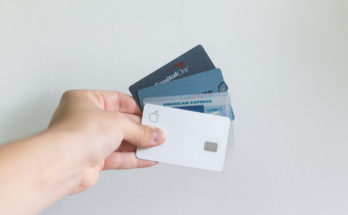The Coppola Column
How governments could weaponise digital banking against “undesirables.” And how to prevent it.
In the past 50 years, financial services have changed beyond all recognition. Not just in the City of London and on Wall Street, but in the lives of ordinary people. The digital economy is bringing about a revolution in shopping habits and entertainment, but the important changes in finance that underpin this revolution were made long ago. Mainstream financial services have been online and digital for the best part of 20 years.
But as online and digital finance become ever more important, so life becomes more difficult for those who are excluded from mainstream financial services. One of the principal benefits often claimed for Bitcoin is that it can provide these people with essential payment and saving facilities. How true is this – and what alternatives are there?
Half a century ago, all economies – developing and developed – were primarily cash-based. Managers might have had their salaries paid by cheque monthly, and they would pay those cheques into their bank accounts. But for blue-collar workers, who made up the majority of the workforce, the Friday night pay packet was ubiquitous. They received their weekly wages in cash, spent some of it in the pub, and gave the rest to their wives, who spent it on food and rent.
At that time, most people didn’t have bank accounts, and they didn’t need them. All their expenditure was in cash, so it made sense to receive wages in cash. Receiving monthly cheques, or having their wages paid directly into their bank accounts, would have made their lives a whole lot more complicated. There were no ATMs then, and no electronic point-of-sale payment facilities. So to get cash to buy the shopping, they would have to visit a bank during opening hours – or rather their wives would, which was not only inconvenient but at that time, probably impossible, since women generally didn’t have access to bank accounts in their own right.
Most households didn’t save significantly either. If they did, it was often cash stuffed into mattresses. Encouraging the poor to save was a key concern of philanthropists; in Scotland, the Trustee Savings Banks were created specifically as safe savings vehicles for the poor. Today, encouraging people to save is a key concern of governments, the World Bank, and cryptocurrency enthusiasts.
In developed countries, cash-based economies like those of the past have mostly been consigned to the history books, with Germany as something of an exception. But in developing countries, cash-based economies are still the norm, particularly for the rural poor.
In Mexico, about 60% of the population is unbanked. In El Salvador, which has just announced the introduction of Bitcoin as a parallel currency, the proportion is even higher, at 70%. And in some developed countries, there are still sizeable pockets of financial exclusion. In the US, about 20% of the population is unbanked.
Financial exclusion is closely associated with poverty, and it’s something of a vicious circle. People who are barely earning enough cash to live on, lack enough money to open a bank account, and as they are often from marginalised groups and working in the grey or black economy, many also lack the paperwork needed to open a bank account. But not having a bank account can prevent them from moving into better-paid and more secure work.
As the digital economy grows, and physical cash is used less and less, the risk is rising that nativist, authoritarian and corrupt governments will deny some people the means to live.
The solution to this perhaps seems obvious. Governments should ensure that everyone has access to payment services and safe savings, either by providing those services themselves or by forcing financial institutions such as banks to do so. In the UK, the big banks are obliged to provide basic banking services to everyone. However, as this is a loss-making service the banks don’t advertise it, and the government has done nothing to force them to do so. And crucially, it depends on proof of ID. If you lack the paperwork to prove your identity, or you don’t have a permanent address, you can still be completely excluded from banking services.
But in most countries banks aren’t obliged to provide basic banking services, and governments don’t provide them either. Those who are financially excluded are often socially excluded as well. There is little concern for their plight, and they might even be deliberately excluded because they are popularly viewed as “undesirable.” Migrants and refugees can find it particularly difficult to gain access to financial services, and in some countries, it is actually dangerous for political dissidents to use banks. And democracy is no protection against this sort of exclusion. Elected governments are often far from benign to those whom their voters perceive as a threat, or whom the government perceives as a threat to their future electability.
Even if financial exclusion is not deliberate, it may be entrenched because of underdeveloped transport and communication networks. The rural poor in many countries have effectively no access to banks because banks are in city centres and it’s a day’s walk or more to get there. Furthermore, when the local economy is cash-based, savings kept in remote banks can be all but inaccessible when needed. No wonder people in remote communities often prefer to transact and save in cash.
A digital version of cash, created independently of governments and immune from government control, could ensure that no one is ever denied the means to live.
Until now, the anonymity and ubiquity of physical cash has enabled those on the margins of society to survive. But as the digital economy grows, and physical cash is used less and less, the risk is rising that nativist, authoritarian and corrupt governments will deny some people the means to live. In a society where there is no physical cash, and no digital equivalent of physical cash, financial exclusion is a death sentence. There is now an urgent need to ensure the unbanked are not denied access to digital payments and savings vehicles. In the digital economy, access to these services must be recognised as a human right.
The need to replicate the anonymity and ubiquity of physical cash in the digital economy is perhaps the strongest argument for cryptocurrencies like Bitcoin. Being able to transact digitally without having to open bank accounts or reveal their identity to government authorities could enable the socially excluded to participate in the digital economy. And for communities where smartphone ownership is widespread and banks all-but non-existent, a digital form of cash could be safer and more liquid than the paper variety. Most importantly of all, a digital version of cash, created independently of governments and immune from government control, could ensure that no one is ever denied the means to live.
Sadly, Bitcoin and other cryptocurrencies are currently a long way from becoming a digital version of cash. And proposals for central bank digital currencies seem to be drifting towards account-based systems rather than bearer instruments. Nonetheless, rather than dismissing cryptocurrencies as the province of criminals, we should recognise their potential to provide a safe haven for financially excluded people and those living under repressive regimes.
In the new digital economy, there must be a brake on the power of governments to shun those it considers “undesirable”. Cryptocurrencies can provide that brake.



